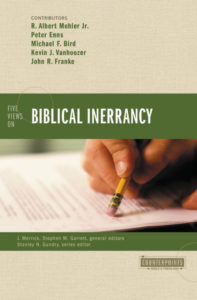I may technically be a protestant and tend to reject many liturgical aspects of Christian faith,1 there are two seasons of the Christian calendar that I do take part in. One being Lent. The other, Advent.
Nearly everyone knows what Lent is, but less know about Advent.
I’m sure you’ve all seen an advent calendar, though. They’re a little countdown to Christmas starting December 1. Most of them have a little prize or treasure inside, and most are out of order so you have to hunt for the day you want.2 So we have an idea of advent, but, these calendars are a bastardization of the season of Advent.
“Advent” means the arrival of someone or something important. When we participate in Advent, we’re participating in the centuries-old celebration of the arrival of Christ, more than just his birth on Christmas.3
Advent is traditionally started the 4th Sunday before Christmas Eve and ends on Christmas Eve or Christmas Day, depending on the tradition. This year that puts the start on December 2. When participating in Advent, there are Bible passages to be read and a candle to be lit each Sunday evening, and one to be lit on Christmas day in certain traditions. Many traditions use specific colors for their candles, however, it is not essential to participation. The whole thing is a connection to the ancient Israelites who long awaited the arrival of their savior. As we enter the Advent season, we await the second arrival of our savior, while also celebrating his first arrival.
This may seem like a bygone, rigid, liturgical requirement. And, while I could agree to some extent. There are some who get too caught up in making sure you use the “proper” candle colors according to their tradition. But that’s the thing about traditions, they should never be set in stone. They’re what has worked in the past, but they are not the way things have to be moving forward.
Even more, there’s something about it, like Lent, that brings back things we’ve lost in our modern following of Christ. How often do we hear “Jesus is the reason for the season”? Probably at least once a week starting the day after Thanksgiving. How often do we hear people complain about others saying “happy holidays” vs. “Merry Christmas” (which, by the way, it should be “happy Christmas, but that’s a different story)?((Also, “happy holidays” is a perfectly acceptable greeting that is in no way a war on Christmas or a way to oppress Christians)) At least once a day.
Advent can change all that. While yes, Jesus is the reason for the season, there’s something about December that makes even Christians tend to forget that. We get so caught up in going to and throwing parties, making dinner, buying and giving and getting presents, and the tree, and the snow, and the music, and the traffic, and the decorations, and the traditions, and the cleaning… oh, and the money that we no longer have because of all the above. Where is Jesus in any of that?
How many of you can honestly say that, in your, however-many-years of life, your family or friendly Christmas celebrations have actually been about Jesus? Do you read the Christmas story? Do you thank him for coming? Or has he been more of an afterthought? “I got all these great presents! And I’m so full! O, and Christ was born today… that’s kinda cool too, I guess…” Participating in Advent fixes that.
When you participate in Advent, you spend four weeks remembering the longing for a savior. You remember, regularly, that, even with everything else going on, the season (Advent season, not the holiday season) is actually about the coming savior, and nothing else. While the Jews awaited the coming of their savior, we await the second coming of ours and await the celebration of his first coming.
The Eastern Orthodox church has a similar celebration leading up to Christmas, but it functions more like Lent. In Early November they begin a fast that lasts until Christmas. Like Lent, this fast is a reminder of our need for grace, forgiveness, and a loving God who always has our backs, even when we fail again.





